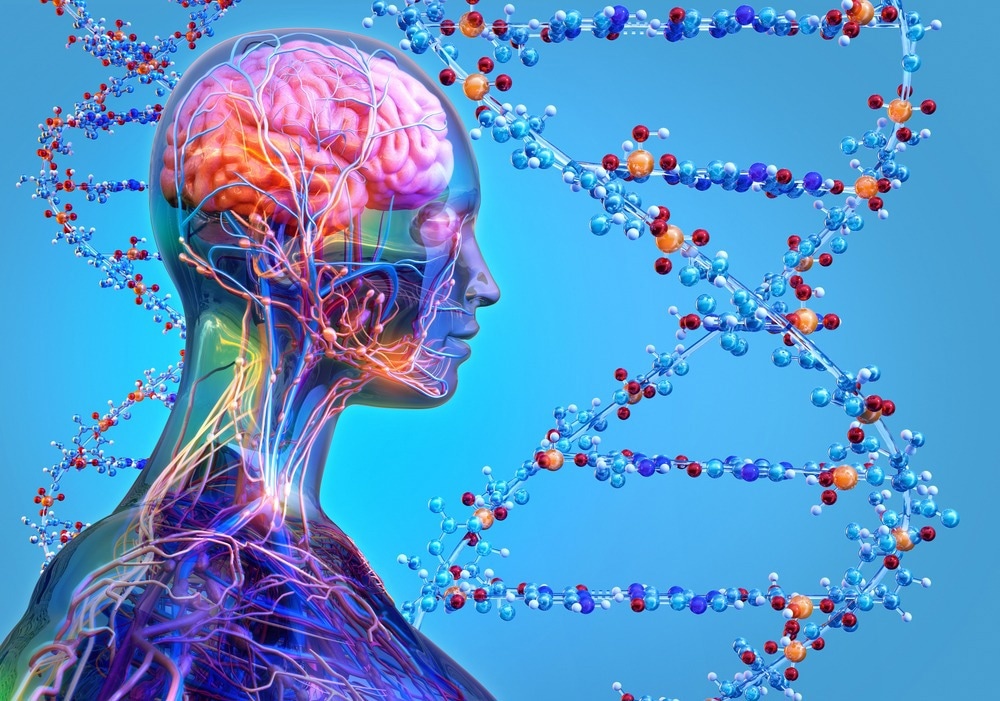Systems biology encompasses a ubiquitous science that involves computational and mathematical analysis of complex biological and molecular systems.

Image Credit: Corona Borealis Studio/Shutterstock.com
The progress in this field has spearheaded the shift in drug research towards advanced treatments, known as systems therapeutics. Systems therapeutics work differently from current drugs in several ways, targeting biological networks and disease processes as opposed to single transduction pathways and physiological processes. This article will provide an overview of systems biology in drug development and its role in progressing toward novel therapies.
Introduction
Systems therapeutics can be defined as advanced treatments with novel avenues based on research progression in many fields, including cell biology, genetics, molecular biology, and systems pharmacology.
Adopting the ‘single path transduction model’ includes drug effects due to interactions of a single drug at a single receptor and has resulted in significant drug development, such as propranolol and cimetidine. However, this model consists of drug development where the drugs are usually applied in fixed doses with the underlying concept of ‘one size fits many’; however, in the second half of the 20th century, there has been a paradigm shift, progressing past ‘single target-single drug’ development.
The progression of ‘biological network transduction models’ encompasses drug effects due to multiple interactions in a biological network. This can be used for many applications, such as understanding how biological systems function, identifying molecular mechanisms of action of drugs, as well as designing therapeutic strategies to alter disease processes instead of just controlling the symptoms.
Progressing Towards Personalized Medicine
Using omics has provided advanced insight into differentiating between molecular mechanisms that may result in diseases with similar or identical phenotypical characteristics. Differentiating between subtypes of disease may hold significant implications for medicine and drug development, with novel therapies being explored for clinical practice.
An example of this includes biomarkers, such as BRAF mutations, that can be used to predict responsiveness to anti-EGFR monoclonal antibodies in metastatic colorectal cancer patients. Differentiating between patients who respond and do not respond can further the field of personalized medicine, aiding researchers in understanding which treatments will be the most effective in patients. It can also prevent obsolete therapies from being provided to non-responders, which may cause disease progression.
The biological network transduction model can account for the wide range of characteristics that are encapsulated by the behavior of complex biological systems, which can be used for designing systems therapeutic interventions for diseases. An example of this includes JAK/STAT pathways involved in inflammatory disorders such as rheumatoid arthritis, which have recently been explored for their role in immune disorders as a basis for treatments that target complex biological networks.
Systems therapeutics can streamline the development of novel interventions, which advance personalized or precision medicine, with these precision treatments working differently from fixed treatments.

Image Credit: paulista/Shutterstock.com
These therapeutics are differentiated to account for differences in the molecular mechanisms underlying disease development, as well as accounting for variables that cause inter-individual differences in treatment response.
Systems therapeutic interventions are also more complex in nature to describe the various interactions between nodes in a biological network while also being applied in more of a preventative approach to reduce the risk of disease progression.
The use of multitarget drug combinations for systems therapeutics relies on mathematical models that describe interactions within biological networks. They also encompass pharmacogenomic information used to predict risk to disease, exposure variability, treatment response, and risks of adverse effects in real-life situations.
With models of pharmacodynamic interactions in drug development remaining mostly unexplored or described by simple linear functions, this insight can hold major implications for optimizing drug development for a range of diseases.
This revolutionary approach may also challenge conventional regulatory approval processes for drugs, with system therapeutic interventions involving designing and developing tailor-made treatments for specific patient populations.
Artificial Intelligence
The popularity of artificial intelligence research has also been introduced for advanced novel therapeutics, with machine learning algorithms predicting which patients are more likely to require particular treatments depending on their genomic information.
Researchers have utilized deep learning to integrate knowledge of scientific literature with sequencing results to suggest 3D protein configurations, identify transcription start locations, and predict gene expression from genotype information. This data, along with omics and systems biology, may be revolutionary for detecting disease associations, which can aid drug developers in determining the best design for stratified populations.
Future Outlook
Systems biology enables researchers to comprehend complex biological and mathematical systems, enabling novel drug development. The progression towards personalized medicine has become a desirable avenue for researchers who aim to utilize various models to further identify the role of molecular mechanisms in various diseases and develop effective systems of therapeutic interventions.
This has significant implications for medicine and stratified populations that have suffered under a ‘one size fits many’ approach to conventional medicine. Instead, understanding multiple biological networks provides patients with potentially novel therapeutics that ensure patients carry particular genomic mutations that increase their level of responsiveness to treatment before providing the drug.
This approach enables patients to be effectively treated for their disease, as well as reducing their risk of disease progression. Additionally, if mutations are not found in particular patient populations and responsiveness is not determined, alternative treatment options can be explored.
The field of systems therapeutics, which encompasses personalized medicine, holds great potential for the future. With the emergence of AI in medicine and the development of algorithms and mathematical models that take into account a patient’s genome as a whole, researchers can develop innovative drug treatments that reduce the global disease burden and increase patients' quality of life.
Sources
Breitling, R. (2010). What is systems biology? Frontiers in Physiology, 1. doi.org/10.3389/fphys.2010.00009
Danhof, M., et al. (2018). The future of drug development: The paradigm shift towards systems therapeutics. Drug Discovery Today. 23(12), pp. 1990-1995. doi.org/10.1016/j.drudis.2018.09.002
Johnson, K.B., et al. (2020). Precision Medicine, AI, and the future of Personalized Health Care. Clinical and Translational Science. 14(1), pp. 86-93. doi.org/10.1111/cts.12884
Strianese, O., et al. (2020). Precision and personalized medicine: How genomic approach improves the management of cardiovascular and Neurodegenerative Disease. Genes. 11(7), p. 747. doi.org/10.3390/genes11070747
Further Reading
Last Updated: Nov 30, 2023